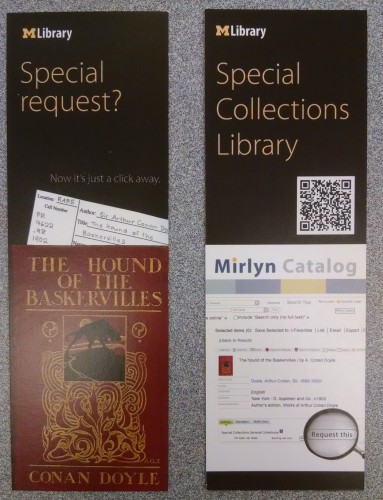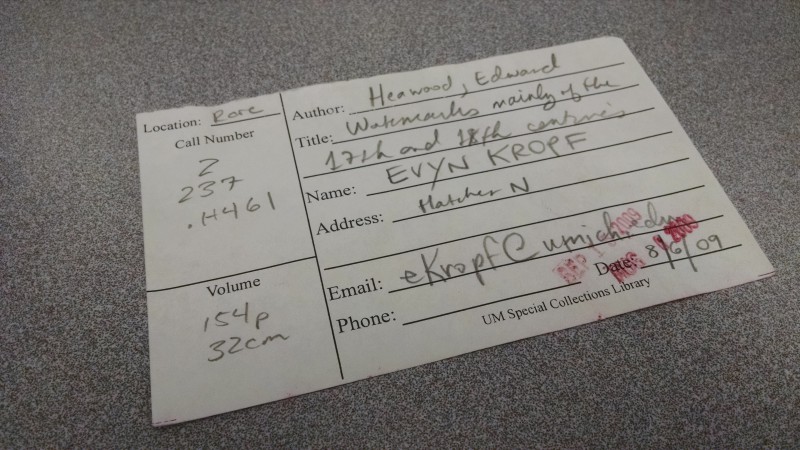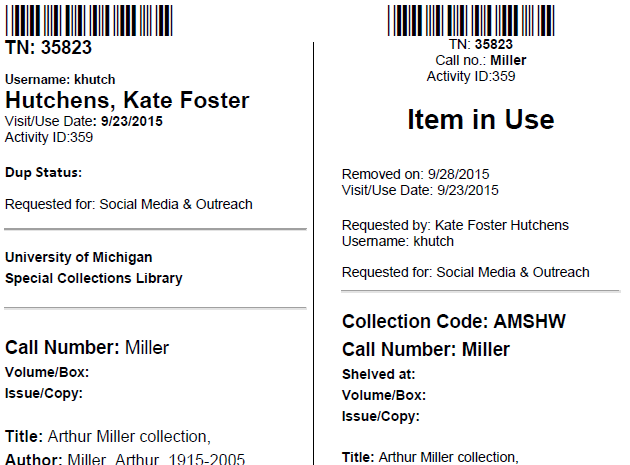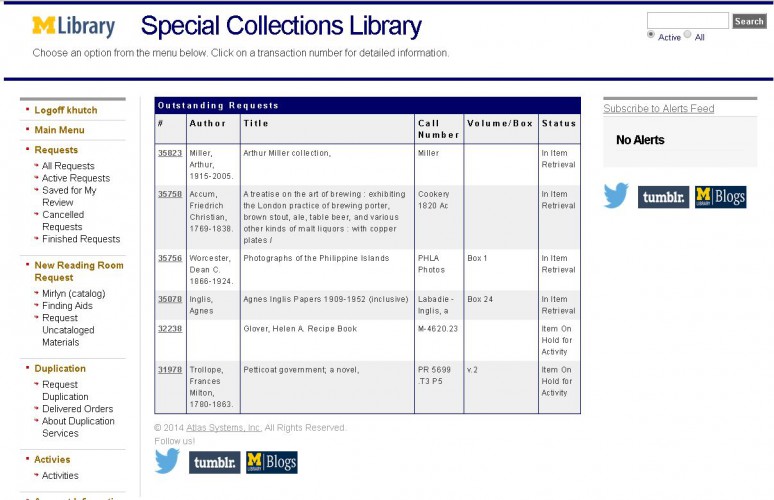Today is the Special Collections Library’s fourth Aeon-niversary! Aeonis commercially-produced software that supports our online user request system.

Bookmarks we produced to market the advent our new “Request this”service in the fall of 2011.
Because Special Collections Library's materials do not circulate like other materials in the Library, and because our materials are accessible to both members of the campus community and the public, we’ve never used the same circulation system (Aleph ILS) that the rest of the U-M Library uses. Prior to October, 2011, all requests for Special Collections materials were submitted either in person or by directly contacting our staff. We used handwritten callslips* to indicate who used the item and to mark the spot on the shelf from which the item was pulled. When the patron submitted a callslip, we would look up the item in the catalog to find out where it was shelved, which often turned out to be offsite, so the person (already having made the trip to our Reading Room) would have to come back sometimes a week later to access the item.

Our Islamic Manuscripts curator’s request for a book on watermarks. There are two date stamps, each representing a use. Callslips for items used intensively were all but illegible for all the red date stamps.
In order to understand which materials were being used, we tallied all requests by hand (oof!) every month...that is, if we could read the writing well enough. And to understand who our users were, every two years we analyzed a sample of all users in the Reading Room for three consecutive weeks. We had data, but it was laborious to gather and clunky to use.

With a click of “Request this,” we now can get accurate and complete user and item information on a tidy printout.
These days, most requests are submitted before a user arrives in the Reading Room (or even arrives in Ann Arbor), and so items are ready and waiting upon a user’s arrival. Patrons still request some things that are not available precisely when they might prefer, but this is now the exception rather than the rule.

Behind-the-scenes data triggers a warning to the requester: this thing isn’t available right away!
Not to mention that patrons can now submit and receive duplication requests completely online, use request account history to assist with managing their research, and collaboratively request materials directly from the catalog when preparing for instruction sessions.

Citations and lists of requests can be exported from online accounts to facilitate scholarly work.
If your own history with Special Collections extends back more than four years, you’ll recall those handwritten callslips – perhaps fondly, perhaps grudgingly – and I hope you’ll agree that our service has been much improved!
*To boot, these callslips were printed on carbonless copy paper – not recyclable! Each request thrown in the trash was a tiny crack in this Planet Blue Ambassador’s heart. Now all our callslips – printed on regular office paper – are eligible to be pulped and printed again one day!